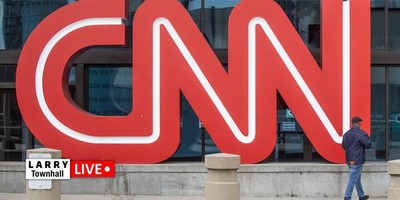This piece was written by Gary Hoitsma
The legacy of President George W. Bush and his relationship with the conservative movement is the subject of a timely new book by a young conservative who worked inside the Bush White House for the better part of the two Bush terms in office.
Describing himself, per the book’s title, as “The Man in the Middle,” Tim Goeglein acknowledges that his is not exactly a household name of the Bush era. Yet the thoughtful perspectives he shares from his experiences as a key lieutenant of presidential counselor and political advisor Karl Rove are evocative of the sometimes-complicated relationship that movement conservatives had and still have with the 43rd president.
<>Goeglein provides an earnest and heartfelt defense of what he sees as President Bush’s conservative record of accomplishment on key policy elements of the culture wars of the time – ranging from stem cell research to abortion, the institution of marriage, the make-up of the Supreme Court, the prosecution of the war on terror and keeping the country safe post-9/11. He gives Bush high marks on all of these, while relating important aspects of the decision-making involved.
He describes Bush as “the most pro-life, pro-marriage, pro-religious liberty president of the contemporary era,” suggesting that this collective achievement on the cultural-social side of the ledger will only “grow with time.”
At the same time, Goeglein deliberately downplays any in-depth discussion of some of the key issues of the period where Bush and conservatives seriously parted company— e.g., out-of-control spending, the size of government, No Child Left Behind, Medicare prescription drugs, and immigration reform, among others. These, Goeglein says, “will be closely examined and debated for years to come,” but not so much by him in this particular book.
Recommended
To the extent that conservatives outside of the Bush orbit might have sympathy for Goeglein’s perspective, and would certainly join in defending Bush against the former president’s more strident critics on the left, it is probably fair to say that most would still have a hard time marching in the kind of pro-Bush parade that Rove and Goeglein might want to lead at this late date.
The Bush era has now been so completely subsumed by the debilitating pall of what the Obama regime has wrought in just three years that to the extent most conservatives look back on the Bush years, they mostly see the lost opportunities and miscalculations that they would argue only helped lead to the 2008 electoral catastrophe and the subsequent diminishment or reversal of those very things Goeglein might single out as Bush’s more positive conservative accomplishments.
In essence, like his father before him, Bush-43 was never completely animated by the conservative vision of limited government and the need to truly confront the out-of control spending and inexorable growth of government that he inherited and that have been so enormously exacerbated, especially by his successor, to such devastating effect. And for a president who campaigned against the idea of debilitating nation-building entanglements, Bush’s unfinished legacy in Iraq and Afghanistan, at a minimum leaves many conservatives conflicted at best.
Goeglein seems to be on his strongest ground as he weaves into his narrative thoughtful personal perspectives on politics, culture and life, drawn from his own intellectual immersions into the writings of Edmund Burke, Russell Kirk, G. K. Chesterton, T.S. Elliott and other icons of the more traditionalist conservative view. He notes in passing how, at a younger age, he personally befriended and was influenced by, both Russell Kirk and William F. Buckley, Jr., for example.
Goeglein also movingly recounts how, confronted with public exposure of an incident of personal failure on his part, he was summoned to the Oval Office where he was a surprised recipient of an example of true Christian charity and forgiveness from his boss, the leader of the Free World.
Currently vice president of external relations at Focus on the Family, Goeglein offers a most prescient and on-target warning and admonition to modern conservatives to understand that much of what ails America today cannot be solved through politics, elections and government actions alone. “We need to focus like a laser beam on the health of families, marriages and parenting,” he says, by “reenergizing” the root institutions of American culture, such as voluntary associations of families, fraternal groups, churches, synagogues, neighborhoods, communities and civil society in general.
All in all, Goeglein’s book offers an engaging and substantive view of significant events during important times from the unique perspective of a hard-core Bush loyalist who is, in his own right, also a card-carrying and well-read foot-soldier in the conservative movement. His book is well worth reading.

























Join the conversation as a VIP Member